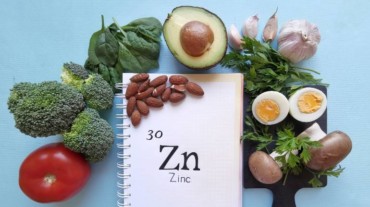
Remember how eating chocolate or a bowl of ice cream uplift your mood? After all, food is one of the best happiness hacks! Certain nutrients present in foods are responsible for releasing happy hormones such as serotonin, dopamine and endorphin. You may feel happier as a result of these hormones. However, if you’re experiencing some nutritional deficiencies, your mood and mental health may be badly impacted.
Your brain produces chemicals that affect your mood, focus and attention with the help of specific foods and nutrients. Foods that include complex carbs, lean protein, vitamins, and minerals are the best for boosting your mood. However, a deficiency in these nutrients in your diet can have a negative impact on your mood.
Health Shots reached out to Dt Divya Gopal, Consultant – Dietitian/Nutritionist, Motherhood Hospitals, Banashankari, Bengaluru, who shared a list of the nutritional deficiencies which can lead to mental health issues and affect your mood.
It is well known that poor eating habits can lead to mood fluctuations. It is because of blood sugar fluctuation and nutritional deficiencies. You could become deficient in a few nutrients if you don’t get a consistent supply of nutrients from the meals you eat.

Gopal says, “Mood and food are both closely connected, but this often goes overlooked. Food forms an important part of our lives. From eating to celebrate an occasion to stress binge eating, a lot can happen to our mood based on our dietary habits and the kind of nutrients that we feed our system.” So, let’s understand which nutritional deficiencies can lead to mental health issues.
Magnesium is required by our body for many different processes, including sleep. Low magnesium levels can lead to ailments like sleeplessness and headaches. A lack of magnesium might contribute to elevated levels of depression, anxiety, and sadness. Magnesium is found naturally in dark leafy green veggies, legumes, nuts, and seeds.
Also read: Tired, stressed, or sad? Drink these teas to suit your different moods
Zinc is essential for healthy physiological functioning, including neural functioning. The body’s largest concentration of zinc is located in the brain, namely in the hippocampus. A zinc shortfall can cause depression, ADHD (Attention Deficit Disorder), memory loss, and other mental health issues. Moreover, low levels of zinc can lead to a drop in Brain-Derived Neurotrophic Factor (BDNF) which has an effect on our mood. Some zinc-rich foods include poultry, legumes, certain varieties of mushrooms, curd, and cocoa.

Vitamin D is the only type of vitamin that is a hormone. The brain, heart, muscles, and immune system are just a few of the tissues in the body that have vitamin D receptors. Therefore, vitamin D is essential for all bodily functions. Vitamin D deficiency is becoming more common, making it a serious metabolic and psychological concern. Sunlight exposure is the best source to get more vitamin D.
Vitamin B12 is crucial for creating DNA in our cells. It plays a crucial role in both the generation of hemoglobin and the maintenance of the neurological system. The brain requires a steady supply of B12 to remain healthy, and those with low B12 levels are also more likely to experience dementia and other neurological declines. Animal foods like dairy and poultry are good sources of vitamin B12.
Select Topics of your interest and let us customize your feed.
PERSONALISE NOWVitamin C acts as a natural mood booster because it’s essential for the production of neurotransmitters in the brain. Low levels of vitamin C can cause dopamine levels to drop. More and more research is showing that vitamin C levels are linked to psychological mood. Citrus fruits and cruciferous vegetables are great ways to get more vitamin C.
